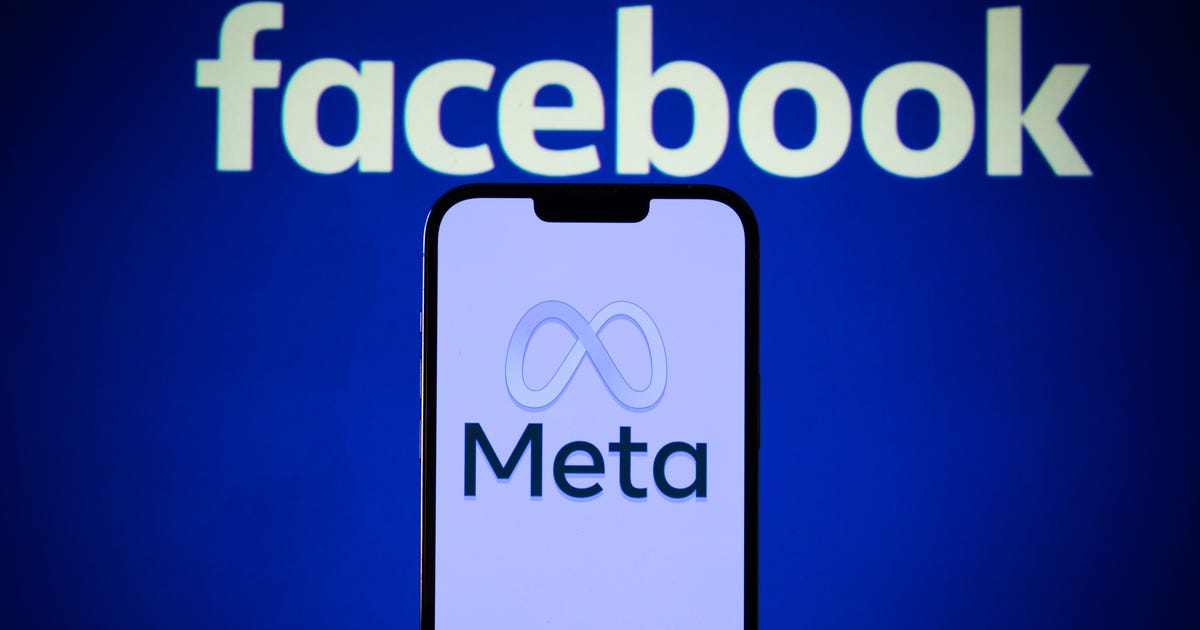Facebook parent company meta is meta parent company of facebook facebook parent company facebook parent facebook parentable facebook parent dashboard facebook parenting video facebook parenting meme

Facebook Parent Meta Removes Deepfake Video of Ukrainian President Zelenskyy
Facebook's parent company, Meta, said Wednesday that it removed a deepfake video of Ukrainian President Volodymyr Zelenskyy for violating the social network's rules against manipulated media.
"It appeared on a reportedly compromised website and then started showing across the internet," said Nathaniel Gleicher, who heads security policy at Meta, in a tweet about the video. "We've quickly reviewed and removed this video for violating our policy against misleading manipulated media, and notified our peers at other platforms."
Videos known as deepfakes use artificial intelligence to create videos of people doing or saying something they didn't. Gleicher said the video of Zelenskyy made it appear the politician uttered a statement he actually didn't. Meta didn't identify the video or say what the statement was. CNET hasn't seen the video.
The removal of the video highlights the ongoing challenges social networks are facing as they try to curb the spread of misinformation after Russia's invasion of Ukraine. Some social media users have been posting old video footage on Twitter and Facebook to make it seem like they were recording events happening in real time. On TikTok, some people used old or out-of-context audio to create fake videos.
Meta doesn't always remove false content, leaning instead on directing users to authoritative sources or labeling misinformation. The social network partners with third-party fact-checkers to flag misinformation on its services, which also include photo-and-video app Instagram. Meta says it'll take down misinformation if there's a risk of physical harm or if the media is highly deceptive.
"We remove this content because it can go viral quickly and experts advise that false beliefs regarding manipulated media often cannot be corrected through further discourse," Meta's rules against manipulated media says.
Source
Blog Archive
-
▼
2022
(170)
-
▼
September
(35)
- Google Adds Three Motorola Phones To Its Google Fi...
- I Almost Ditched My Apple Watch For This Stylish, ...
- Sony Debuts Airpeak Drone For Taking Aerial Photos...
- Disney In Early Stages Of Creating Membership Simi...
- Acer Aspire Vero Eco-friendly Laptop Getting A Spe...
- Tribeca Immersive Unveils VR, AR And World's Bigge...
- Nvidia Says GeForce RTX 3060 Is For Gamers, Not Cr...
- Solar Cars Are Coming, But At What Price -- And Ar...
- San Diego Comic-Con 2022 Highlights: New Avengers ...
- Hyundai Elantra Vs. Honda Civic, Nissan Sentra And...
- Galaxy A53 And A33: Everything Samsung Announced A...
- 'She-Hulk' Episode 3 Recap: Two Hilarious Cameos, ...
- 4 Things We Just Learned About The Future Of GoPro
- Phones For Low-income Users Hacked Before They're ...
- Huawei Brings Uber Rival Bolt To Its AppGallery Store
- IOS 15.4: What You Should Know About Apple's IPhon...
- WWE To Crown First UK Champion, Triple H Reveals
- Facebook Parent Meta Removes Deepfake Video Of Ukr...
- Chinese City Uses Surveillance Tech To Shame Citiz...
- CES 2021: Custom Mix Your Own Lipstick With This G...
- Hogwarts Legacy Game Set In The 'Harry Potter' Uni...
- Samsung Galaxy S Aviator (U.S. Cellular) Review: S...
- Who's Winning America's Electric Vehicle Race?
- Genesis Electrified G80 Starts At Just Over $80K, ...
- Oppo R7s Review: Sleek And Stylish, But Not Worth ...
- Apple TV Plus To Stream 2 Major League Baseball Ga...
- Netflix: The 44 Absolute Best Movies To Watch
- T-Mobile Rolls Out In-store Repairs At 500 Locatio...
- Nokia And Ericsson Pitch Themselves As Huawei 5G A...
- The Samsung Z Fold 4, On Sale Today, Has Been Turn...
- Huawei Says US Ban Will 'significantly Harm' Ameri...
- Best Camera For Summer Travel
- GoPro's Mobile Apps Cut Down On Video Editing Head...
- Repair Shops Could Fix IPhone Face ID Issues Witho...
- Oscars 2022: All The Winners On The Night
-
▼
September
(35)
Total Pageviews
Search This Blog
Popular Posts
-
Surat rasmi, surat rasmi contoh, surat rasmi pkp, surat rasmi spm, surat rasmi 2018, surat rasmi 2019, surat rasmi lhdn, surat rasmi cuti, s...
-
Huawei honor spin off huawei honor spin off is honor owned by huawei huawei sales in usa huawei singapore huawei sell honor huawei stealing ...
-
Wordle our simple 2 weeks wordle our simple 2 bedroom wordle our simple 2 story wordle our simple 2 week notice wordle our simple 2 tier wor...
